- Home
- Projects
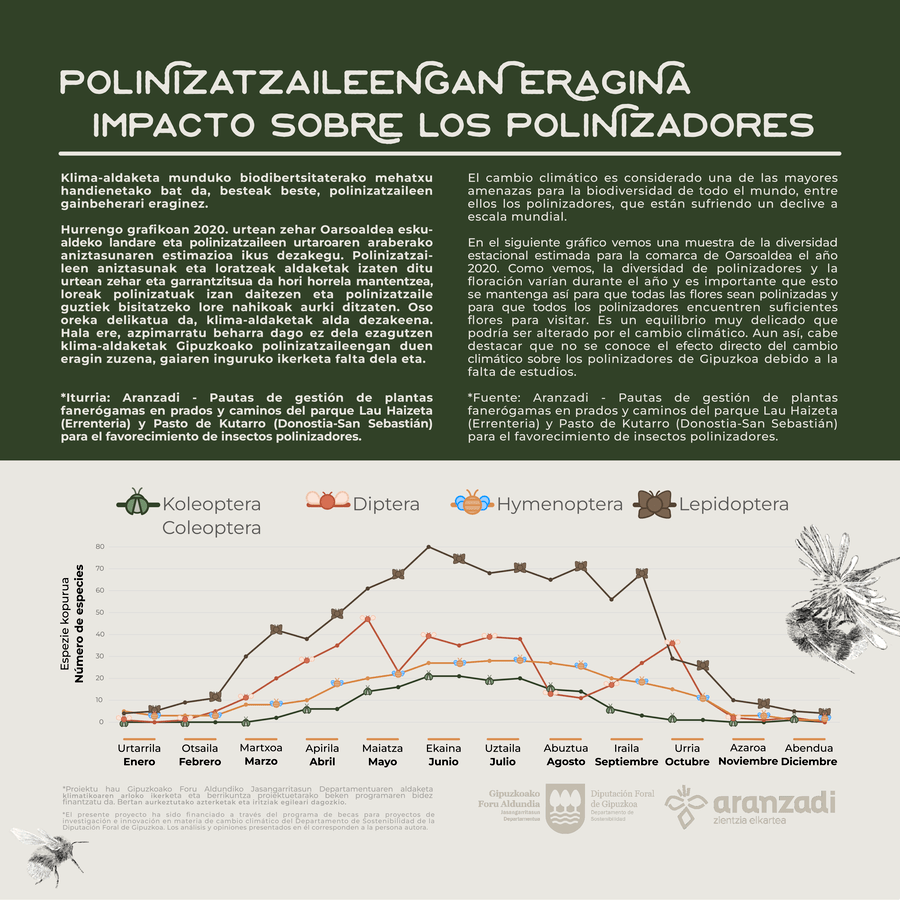
The change in data
- Tipo de proyecto: Data visualizationType of project:
- Técnica: Digital matricial
The planet’s climate has been changing throughout its history, but… surprise! Human activity since the 19th century has accelerated this change, largely due to the burning of fossil fuels. What has been the result? Faster changes in the climate that prevent the planet we inhabit and its biodiversity from adapting. And we are not just talking about the great ambassadors in the fight against change (tigers, sea elephants, or Iberian lynxes), but also about small creatures that live among us and perform vitally important tasks. These data visualizations aim to show the data and figures on climate change and its consequences for pollinators.
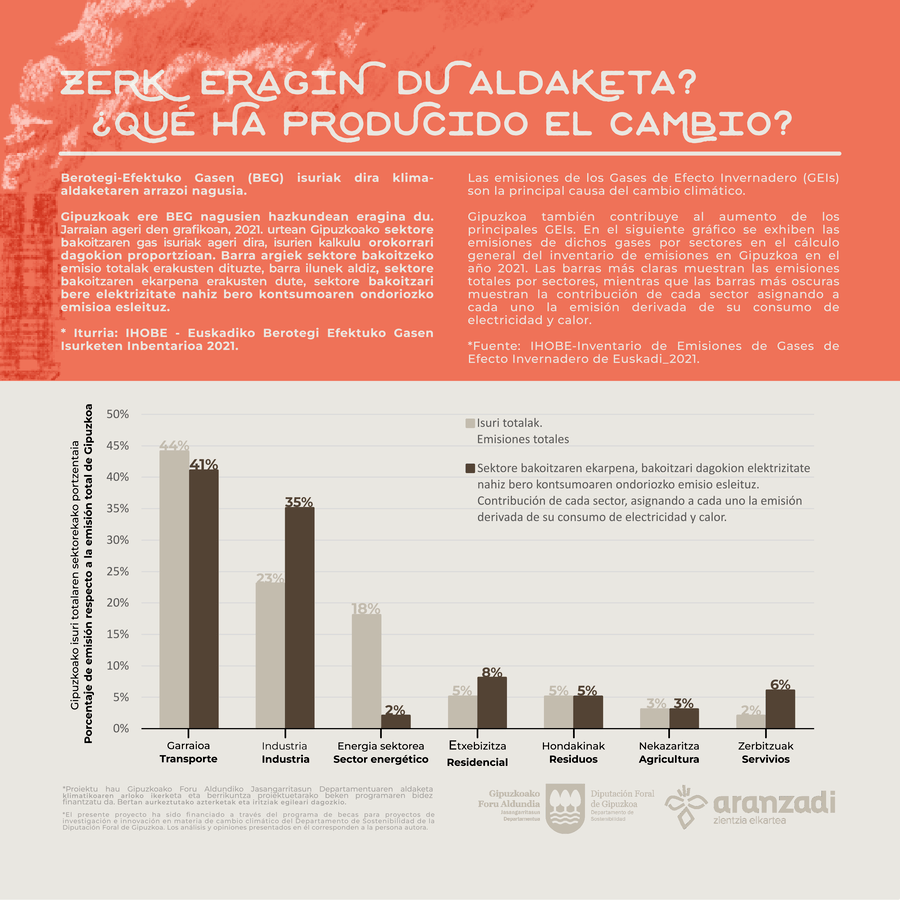
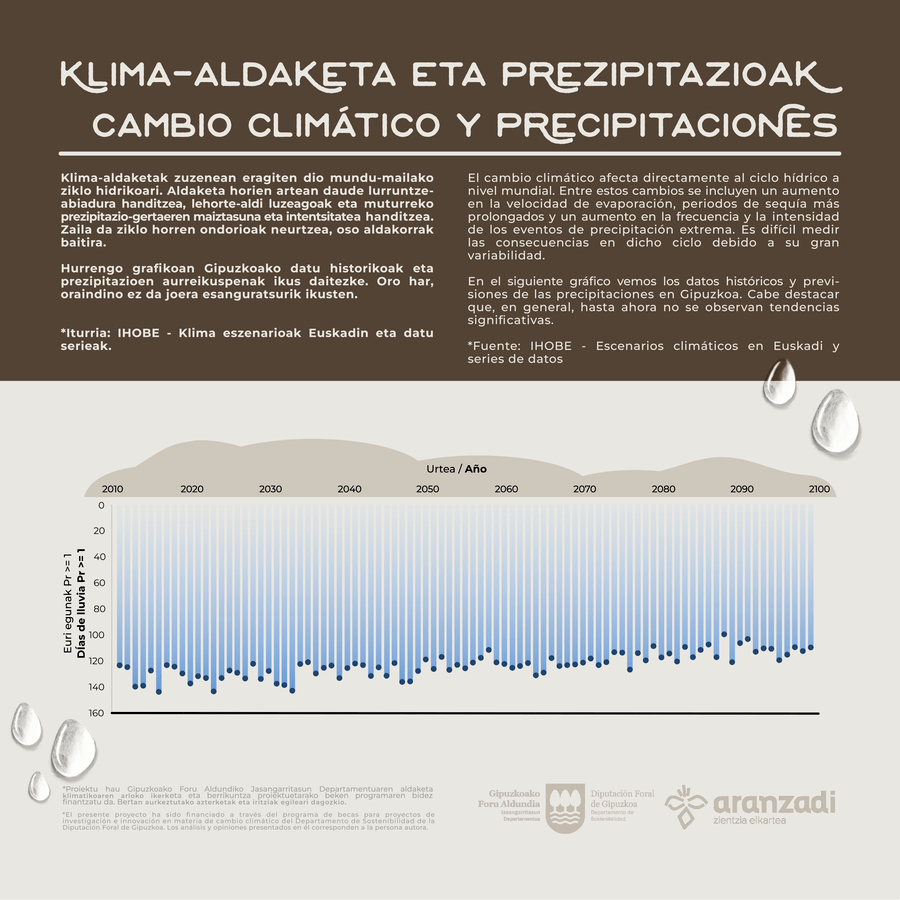
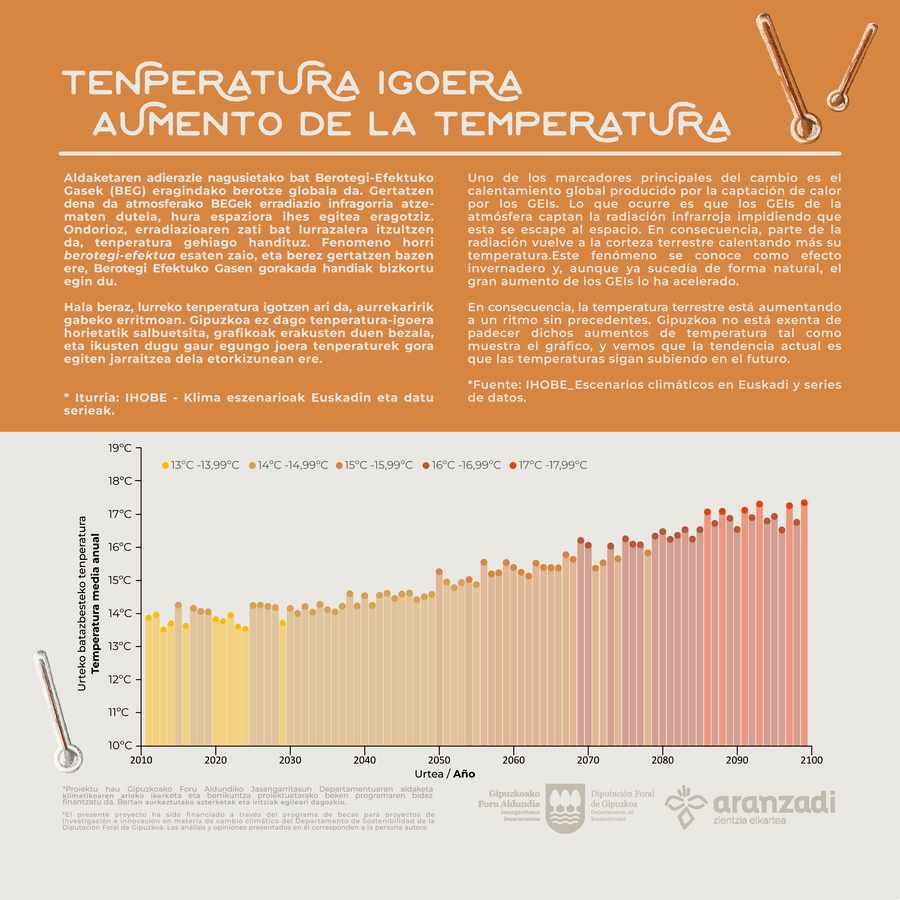
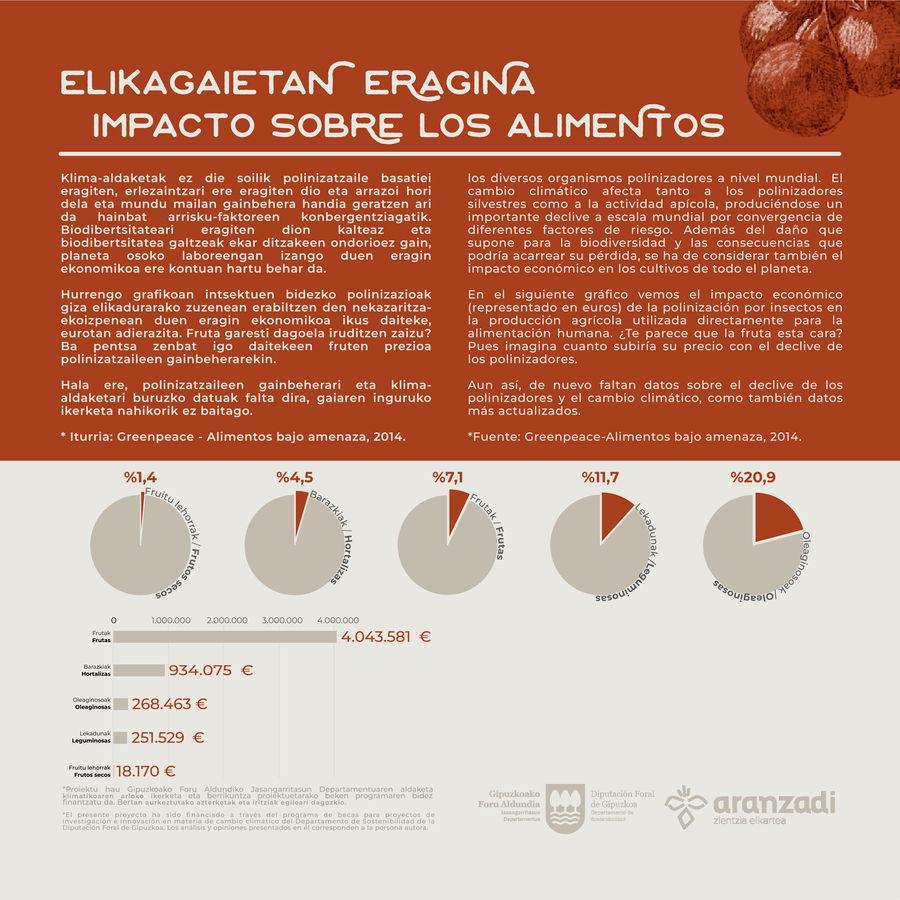

The idea
The objective of this project was to create a series of data visualizations to illustrate the effects of climate change on pollinators. The aim was to show how changes in climate affect pollinators, in order to raise awareness about the environmental impact and the need to conserve these insects.
The result
A series of infographics was developed linking climate change to risks for pollinators. These visualizations showed data on temperature trends in Gipuzkoa and changes in plant flowering, highlighting how these factors affect key species such as bees, butterflies, and other pollinating insects.
The first visualizations focused on climate change, explaining its causes, such as greenhouse gas (GHG) emissions, and its consequences, such as rising temperatures and changing precipitation patterns in Gipuzkoa. Data was then shown on the importance of pollinators in food crops and the synchronization of their cycles with flowers.
Finally, data on the perception of the population of Gipuzkoa was presented, concluding with questions that invited the audience to reflect.
* This series of infographics is part of the “El zumbido de cambio” (The buzz of change) project, funded through the grant program for research and innovation projects on climate change of the Department of Sustainability of the Provincial Council of Gipuzkoa, and was carried out under the supervision of the Aranzadi Department of Entomology.
Know the project:
labur.eus/burrunba-zumbido

